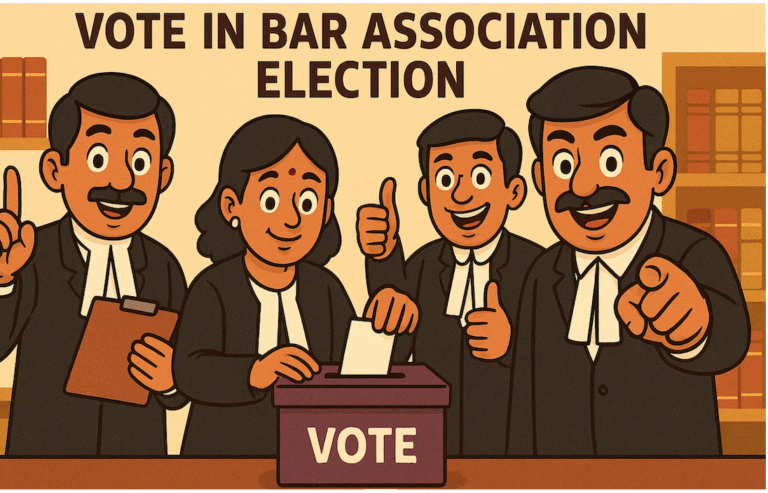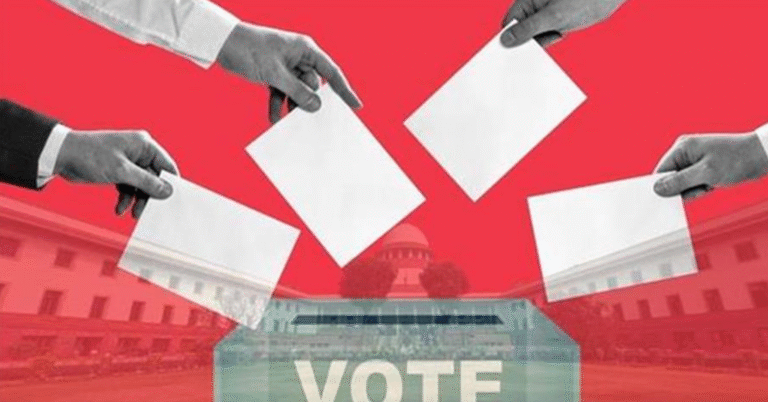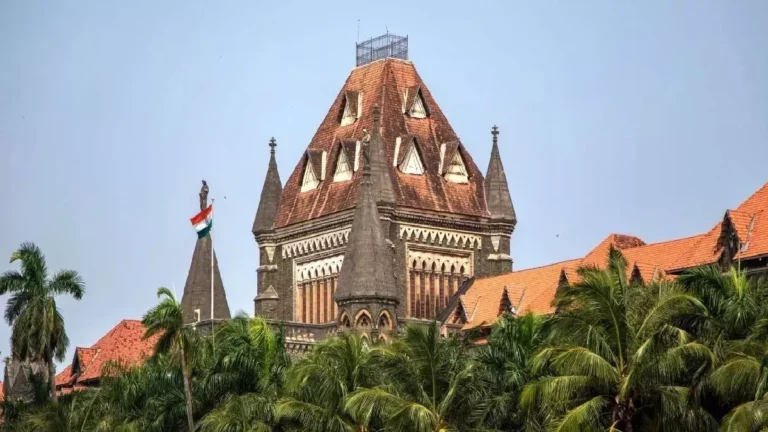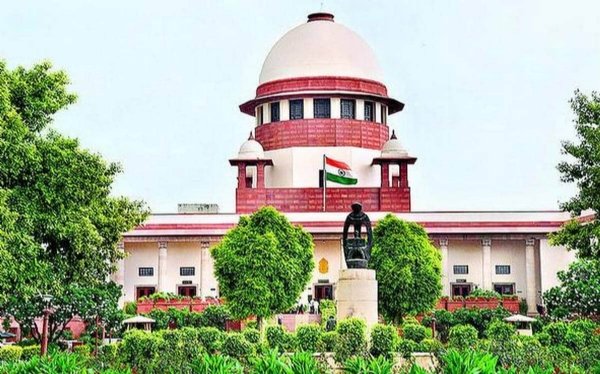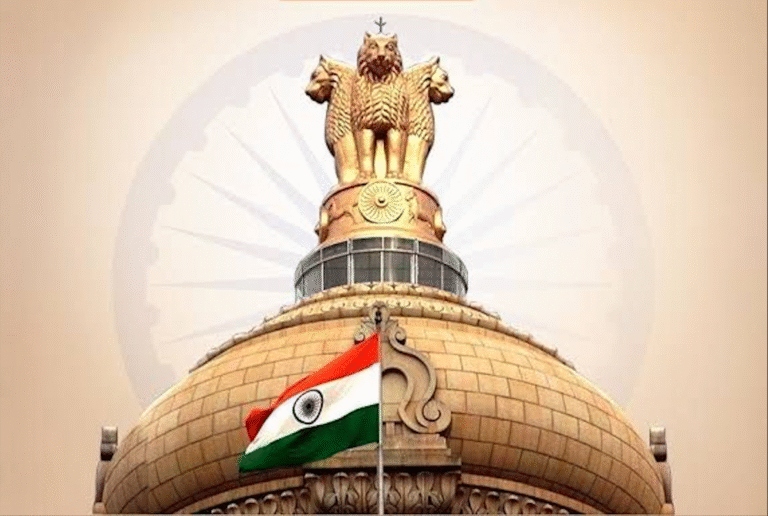Chief Justice Chandrashekhar Sets a New “Law”: Advocates Citing Supreme Court Judgments Are ‘Abusing the Process of Court’ and “Such Advocates Will Be Taken Into Custody”
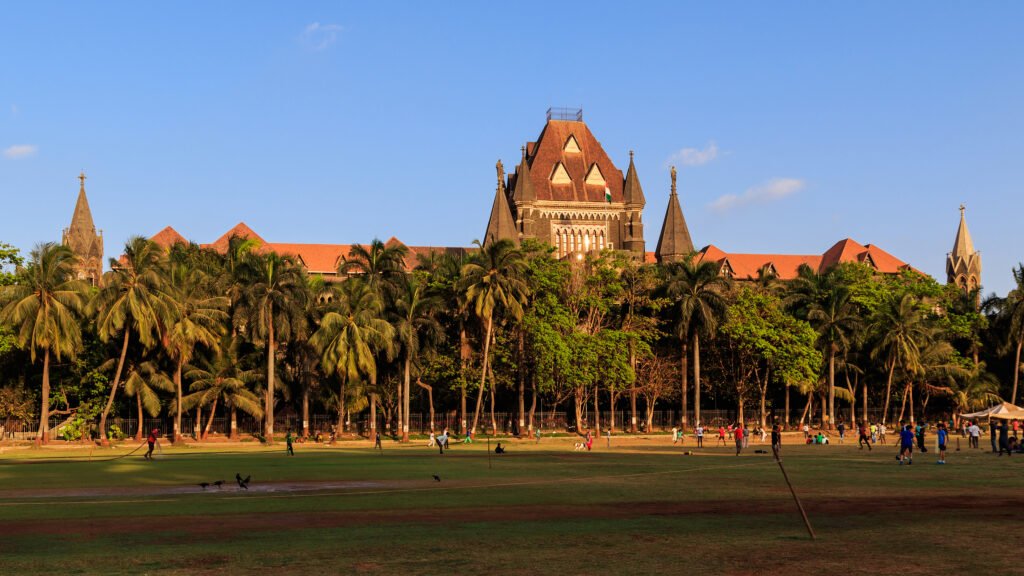
Bar Associations Express Outrage; Representations Sent to the President and Chief Justice of India Seeking Immediate Inquiry, Suspension, and Prosecution. Video Evidence Submitted Along with a Formal Complaint.
Earlier, Justice C.S. Karnan and Several Other Judges Were Convicted, Imprisoned, Suspended, or Dismissed by the Supreme Court for Wilful Disregard and Contempt of Binding Precedents.
Indian Lawyers and Human Rights Activists Association Filed Complaint to the Hon’ble President of India Seeking Immediate Withdrawal of Judicial Work from Chief Justice Shri Chandrashekhar and Criminal Inquiry for violation of rights of advocates. A copy of said complaint is given to all judges of supreme Cort and High Courts.
Members of the Bar have clarified that they hold no grievance against the other four Judges on the Bench — Justice Ravindra Ghuge, Justice M.S. Sonak, Justice B.P. Colabawalla, and Justice Ajay Gadkari. The complainant advocates described them as fair-minded, learned, and composed judicial officers of integrity and prudence, noting that their experience before these Judges has always been impartial and exemplary. They emphasized that the calm and judicious temperament of these four Judges continues to sustain public faith in the judiciary, though members expressed regret that they did not intervene when Chief Justice Chandrashekhar allegedly issued threats in open court.
A constitutional storm has struck the Bombay High Court, sending shockwaves across India’s legal fraternity. During open-court proceedings on October 16, 2025, Chief Justice Shri Chandrashekhar allegedly made a series of unprecedented and alarming remarks that senior advocates have described as “a direct assault on the supremacy of the Supreme Court and the sanctity of constitutional governance.”
Alleged Remarks That Shook the Judiciary
According to video recordings and sworn affidavits submitted by advocates who were present in court, the Chief Justice is reported to have:
(i) Declared that advocates citing Supreme Court judgments are ‘abusing the process of court’, and warned that such advocates or litigants “will be taken into custody.”
(ii) He prohibited litigants and advocates from citing multiple judgments of the Hon’ble Supreme Court, stating that such citations amount to intimidation or threat to the court. He further indicated that the law of precedents does not apply to his court, and that proceedings would be conducted as per his own discretion — This is against the mandates of Article 141 of the Constitution and binding rulings such as In Re: N. Peddi Raju, 2025 SCC OnLine SC 1694, and Shiv Kumar v. Hukam Chand, (1999) 7 SCC 467, which mandate advocates to place all relevant case laws on record even if they are against them.
(iii) Declared that even if an order of the High Court is based on an overruled or per incuriam judgment, it cannot be recalled or reviewed, and that filing such a request itself amounts to contempt of court — a stance that directly contradicts the law laid down in Asst. CIT v. Saurashtra Kutch Stock Exchange Ltd., (2008) 14 SCC 171; State of M.P. v. Narmada Bachao Andolan, (2011) 7 SCC 639; Municipal Corporation of Greater Mumbai v. Pratibha Industries Ltd., (2019) 3 SCC 203; and Bhupinder Singh v. Unitech Ltd., 2023 SCC OnLine SC 321.
(iv) Objected to petitions containing multiple prayers or running into several pages, claiming that this too amounts to abuse of process and contempt of court — ignoring the categorical ruling of the Hon’ble Supreme Court in Amrish Rajnikant Kilachand v. Secretary General, Supreme Court of India, 2023 LiveLaw (SC) 646, which held that no artificial limit can be placed on the length or structure of pleadings, as each case requires adequate elaboration depending on its complexity.
2. Complaint Filed before the President of India and the Supreme Court
In response, the Indian Lawyers and Human Rights Activists Association (ILHRAA), led by Vice President Adv. Mursalin Sheikh and senior members including Adv. Ishwarlal Agarwal, Adv. Partho Sarkar, Adv. Vijay Kurle, Adv. Tanveer Nizam, Adv. Vivek Ramteke, Adv. Abhishek Mishra, Adv. Nicky Pokar, Adv. Meena Thakur, Ms. Anushka Sonawane, Mr Devkrishna Bhambri, Mr Shivam Gupta, Mr Vikas Pawar, Ms Priyanka Sharma, Ms Sonal Manchekar, Mr Sagar Ugle, Ms Nikita Kinjara and Mr Jayendra Manchekar, has filed a comprehensive complaint to the Hon’ble President of India.
The complaint seeks:
Immediate withdrawal of all judicial and administrative work from Chief Justice Chandrashekhar;
A criminal inquiry by the Central Bureau of Investigation (CBI) for abuse of power and violation of advocates’ constitutional rights;
Disciplinary and impeachment proceedings under the Judges (Inquiry) Act, 1968 and the In-House Procedure of the Supreme Court of India.
A copy of the complaint has been forwarded to all Judges of the Supreme Court and High Courts for their consideration and necessary action.
Bar Associations Praise Companion Judges
Members of the Bar have categorically clarified that they hold no grievance against the other four Judges on the Bench — Justice Ravindra Ghuge, Justice M.S. Sonak, Justice B.P. Colabawalla, and Justice Ajay Gadkari.
The complainant advocates have described these Judges as “fair-minded, highly knowledgeable in law, and composed judicial officers of integrity and prudence.”
They emphasized that their experience before these Judges since last many years has always been impartial and exemplary, and that “it is the calm and judicious temperament of these four Judges that continues to uphold public faith in the judiciary.”
However, members have expressed regret that these Judges did not intervene when Chief Justice Chandrashekhar allegedly issued threats in open court and displayed judicial intolerance unbecoming of a constitutional functionary.
Background of the Incident
The incident occurred during the hearing of Criminal Suo Motu Contempt Petition No. 1 of 2025, concerning corruption allegations against Justice Revathi Mohite-Dere.
Adv. Nilesh C. Ojha, appearing in person, submitted that the order dated September 17, 2025, was passed without jurisdiction and in violation of natural justice, citing several Supreme Court rulings showing that the order had been overruled.
Instead of considering the legal submissions, Chief Justice Chandrashekhar allegedly lost composure, issued threats of custody, and dictated remarks in open court that contradict binding judicial precedents.
Video Evidence and Affidavits Submitted
A pen drive containing the unedited courtroom video recording has been submitted by the ILHRAA to the President of India and Chief Justice of India.
Copies have been circulated to all Judges of the Supreme Court and High Courts. The video allegedly captures the Chief Justice’s tone, words, and demeanor while issuing the contentious statements.
According to ILHRAA, “the footage constitutes a grave and unprecedented document in the history of the Indian judiciary.”
Historical Context and Judicial Precedents
Legal experts have recalled that similar acts of judicial defiance have, in the past, invited severe consequences.
The Supreme Court in In Re: Justice C.S. Karnan, (2017) 7 SCC 1, convicted and imprisoned a sitting Judge of the High Court for wilful disobedience of binding judicial orders.
Several other judges across India have faced suspension, compulsory retirement, or criminal prosecution for deliberate violations of Supreme Court directives.
Statement of the Supreme Court Lawyers Association
“This incident is not merely about one individual; it is about protecting the sanctity of the judicial system.
When the Chief Justice himself threatens to jail lawyers for citing the law of the land, the Constitution is in danger.
The President and Chief Justice of India must act swiftly to uphold the supremacy of the Supreme Court and restore faith in the rule of law.”

